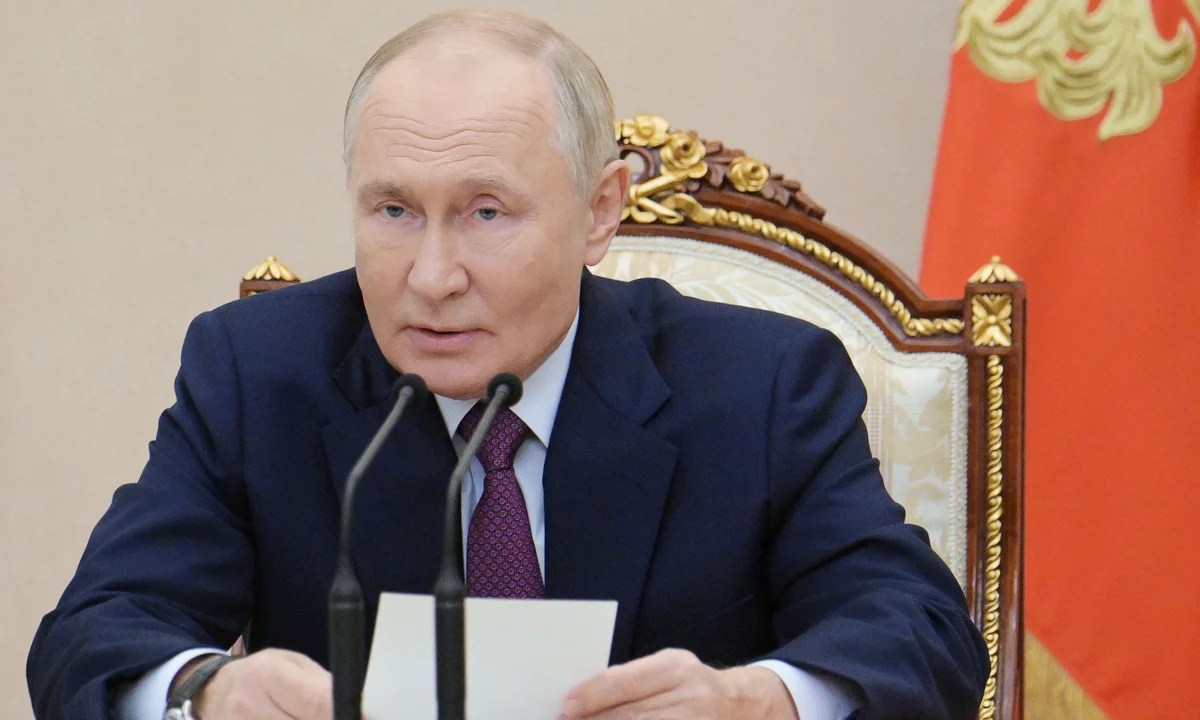Russian President Vladimir Putin made a nuclear threat to the West over the Ukraine crisis, putting his words into action. At a televised meeting of the Security Council of Russia last week, he provided new guidelines for Russia’s nuclear warhead usage, stating that Russia would use nuclear weapons if there is a conventional attack on Russia, especially if it involves the support of atomic country.
This can be seen as quite a departure from Russia’s previous nuclear posturing, causing unease among members of NATO. That is why Putin’s statements underline that any aggression from a state that does not possess nuclear weapons but is backed by the atomic state would be considered an attack on the Russian Federation.
This assertion suggests that the signs of threat have been defined liberally enough to instigate the use of nuclear force. The Russian leader emphasised that nuclear weapons may be used during conventional warfare that poses a critical threat to the state, which means the door is open for further actions in case of military threats.
New rules have appeared at a time of increased tension, including the Missile crisis, especially when Ukraine’s Western allies are discussing possible further military supplies to Kyiv, including the sophisticated weaponry that can target Russian facilities.
Ukraine escalated the conflict a week before Putin’s comments by suddenly firing in the Kursk region. Even though Putin didn’t mention Ukraine by name, he spoke of the need to adjust Russia’s nuclear policy because of a changing environment and new threats.
Russia, which has experienced some losses in Ukraine since the start of the invasion in February 2014, is now trying to warn its Western foes against pumping more support into Ukraine. During the conflict, Putin has more than once alluded to nuclear weapons, thus employing nuclear brinkmanship as a form of psychological warfare on Western states.
His suspension of the New START treaty with the United States, which established the limit of the total number of nuclear weapons both countries are allowed, underlines this rhetoric more.
In response to Putin’s comments, Ukrainian President Volodymyr Zelenskyy called on Western countries not to relax and continue helping Ukraine. Andriy Yermak, the chief of staff to President Volodymyr Zelensky of Ukraine, called Putin’s remarks “blunt threats” and said they revealed that Russia needs to intimidate others with nukes because it has little clout left.
“Russia no longer has any instruments to coerce the world but nuclear weapons,” Mr Yermak said and emphasised that such threats will also be unable to work.
Russia already possesses a nuclear doctrine, established in December of last year, which permits the use of atomic weapons in two specific scenarios: if the country is attacked with nuclear arms or if it experiences a conventional war, which is an existent threat.
Nevertheless, the influences of the Russian hardliners, who have increasingly been demanding a rethink of this doctrine, appear credible when posited against the backdrop of post-Clinton regime international relations, wherein the existing doctrine is perceived as overly liberal to the extent that it does not demonstrate the requisite willingness to unleash nuclear capability when needed.
Putin further explained that nuclear weapons may be used if Russia obtained information about an impending massive strike with aircraft, missiles, and drones over its borders. He insisted that the threat should be treated concerning recent operations of Ukraine’s armed forces.
This latest development clearly shows the nature of insecurity in the global society and the catastrophes that may arise when threats of nuclear development are carried out. The further escalation of the conflict brings the international community’s attention, given that the delicate balance of forces has emerged at this stage.















